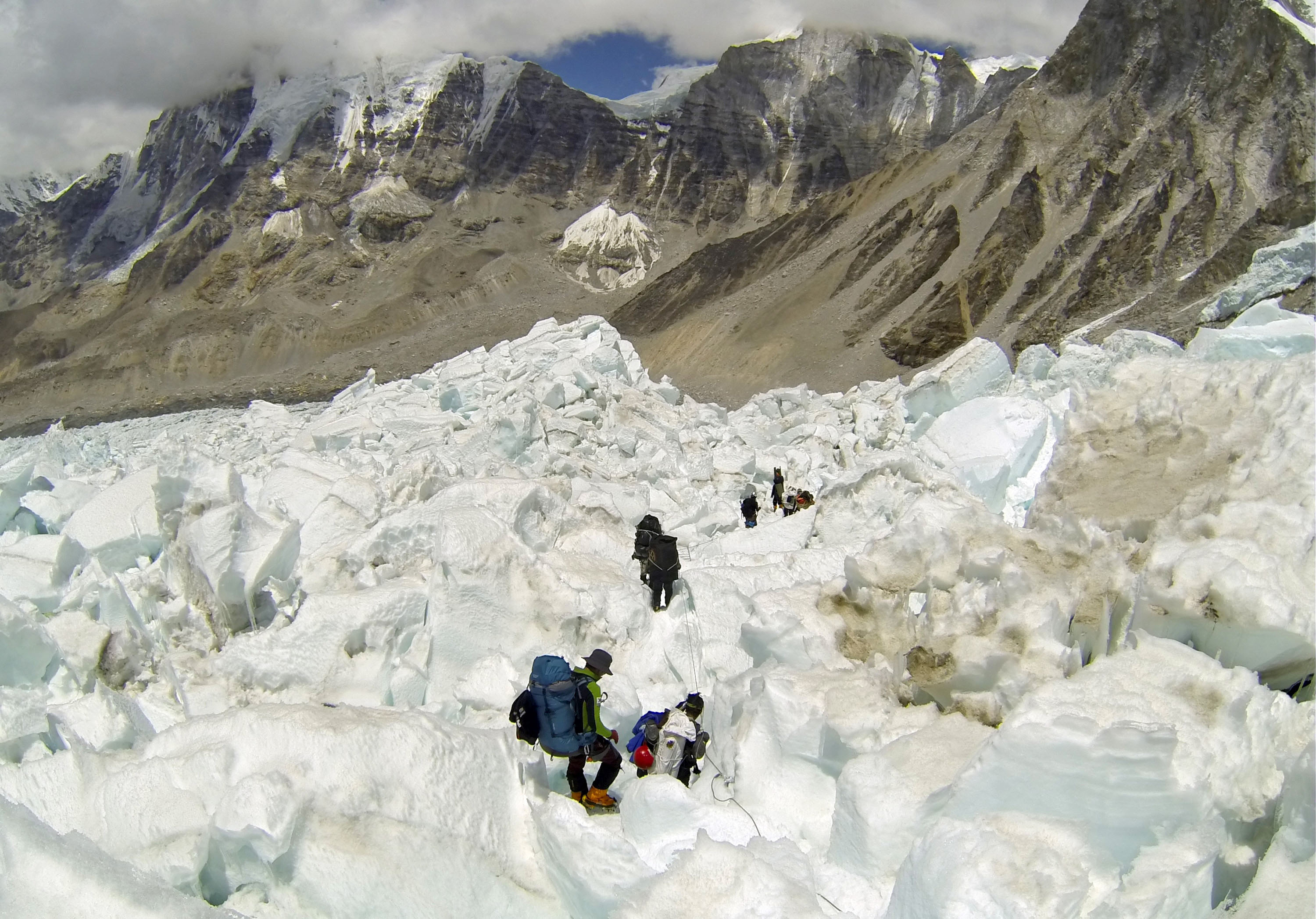The Everest circus is leaving town. With the decision to cancel climbing this year, Sherpas from the 39 expeditions camped at the foot of the mountain are dropping tents and packing gear. Helicopters fly over the Icefall that leads into the Western Cwm, recovering equipment stashed there before the tragic accident that killed 16 Sherpas and other high-altitude workers on April 18.
On the narrow trail to base camp from the small settlement of Gorak Shep, yak trains pass each other, those returning from the mountain laden with equipment. Porters rush to base camp, taking advantage of suddenly inflated wages as expeditions quit the mountain. Whatever you think of the notion of Everest as the ultimate tourist attraction, to see this immense logistical effort is impressive.
As one expedition organizer said: "This is a seminal moment. The whole system will change now." However much purists yearn for the days of George Mallory or Sir Edmund Hillary, the unavoidable truth is that Everest is now big business in a poor country and its worst disaster has put that business — and how it is regulated — under the microscope.

















With your current subscription plan you can comment on stories. However, before writing your first comment, please create a display name in the Profile section of your subscriber account page.